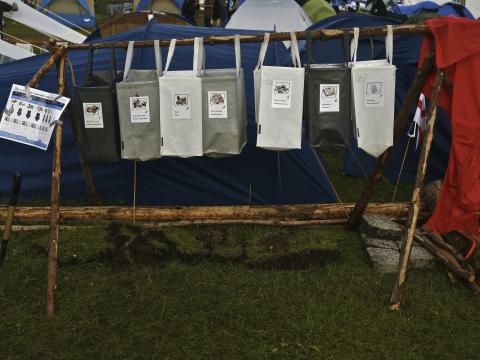World Scout Committee walks the talk on sustainability

Nobody will question how important nature is to Scouting. It is included in every aspect of our educational methods and programmes, and stands as one of our core values. How can we protect nature, something that we hold so dear? How can we be an international movement that makes continuous efforts to protect the environment?
To address this complex issue, and in line with the Sustainability Guidelines approved during this triennium, efforts were made to reduce waste and paper use during the 6th and final regular meeting of the 2014-2017 World Scout Committee (WSC).
Documents were printed upon request only, and the use of plastic bottles and individual means of transportation were stopped, among other things. In addition to that, more vegetarian meals were offered, limiting quite substantially the meeting's environmental impact.
As the WSC also wanted to address the issue of carbon footprints, particularly flights which are among the most impactful activities during WSC meetings, it was therefore decided that flight carbon footprints for each meeting would be calculated to enable the WSC to monitor them and work towards reducing them in the future. On average, the carbon footprint of the last three meetings was 47 metric tons of CO2, while the carbon footprint of this WSC meeting was 44.27 metric tons of CO2.